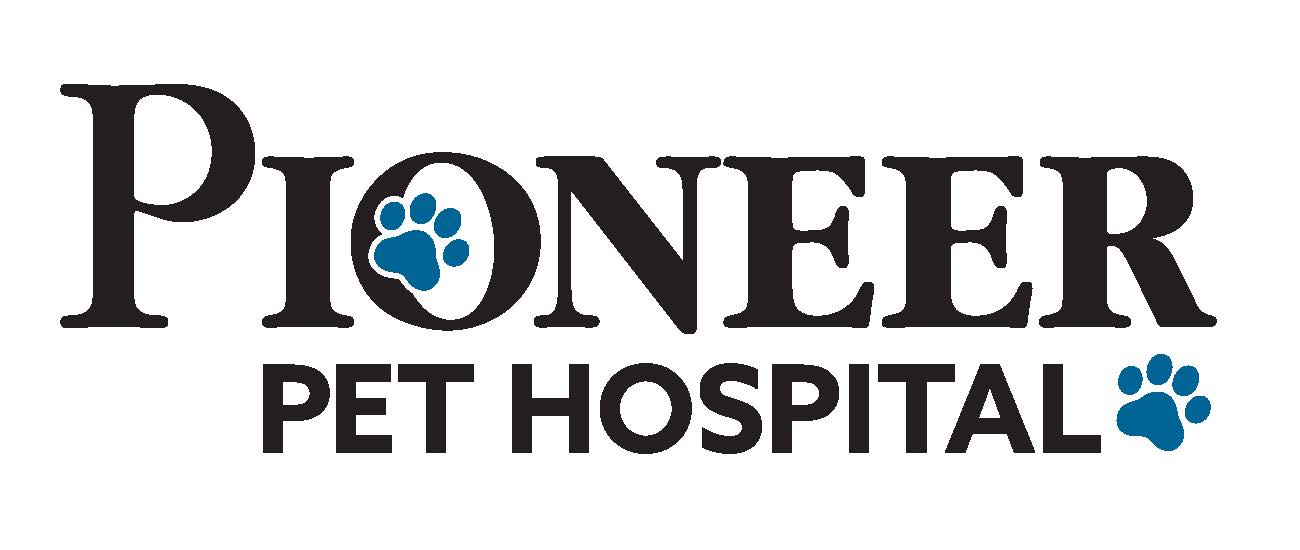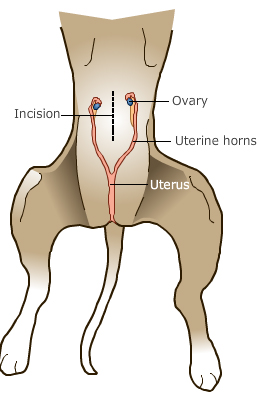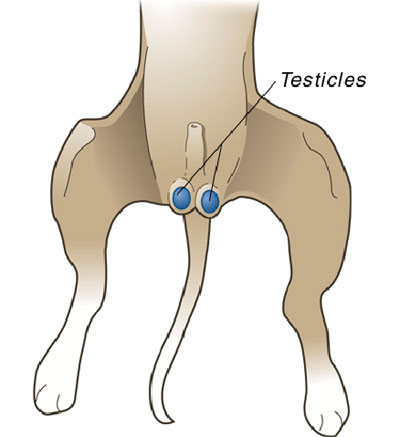
We understand that you want the best for your pet. Pioneer Pet Hospital is the only veterinary hospital in Cambridge/Kitchener that offers the option of minimally invasive surgery.
Laparoscopy is a minimally invasive technique for viewing the internal structures of the abdomen. A laparoscope (camera) is inserted through a small incision in the abdomen magnifying internal structures of the abdomen to a monitor for a more detailed examination. Small incisions into the abdomen can be made to place surgical instruments in to the abdomen for procedures. The most common application of laparoscopy in veterinary medicine are spays (ovariectomy), biopsies, and gastropexy (stomach tack). It’s been used in humans for nearly two decades, but, in recent years, laparoscopy has been adopted as a less traumatic and less painful alternative to traditional surgeries in veterinary medicine.
The following are procedures that are performed at Pioneer Pet Hospital using minimally invasive surgery:
Spay (Female Sterilization)
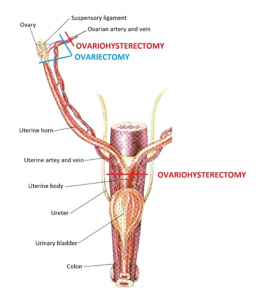 Difference between laparoscopic and traditional spay.
Difference between laparoscopic and traditional spay.
A laparocopic spay involves making 2 small incisions into the abdomen ranging in size from 0.3-1 cm in length. This is instead of a 5-10cm abdominal incision that is made for traditional spay surgeries. With laparoscopic spay it is an ovarioectomy that is performed that is the removal of both ovaries compared to traditionally ovariohystorectomy which is the removal of both ovaries and the uterus. By removing just the ovaries laparoscopically this prevents the placement of a 3rd laparoscope thus reducing surgical time and incisions for your pet. Leaving the uterus while removing the ovaries does not increase your pets risk of developing cancer of the uterus.
Cryptorchid castration
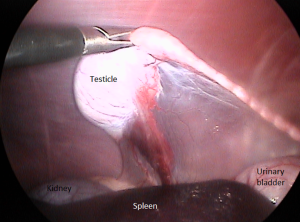 Cryptorchidism, sometimes referred to as retained or undescended testes, is the absence of 1 or both testes from the scrotum.
Cryptorchidism, sometimes referred to as retained or undescended testes, is the absence of 1 or both testes from the scrotum.
For testicles that are still within the abdomen we use the laparoscope to locate the retained testicle(s). We are able to remove it by using the Ligasure TM vessel ligating system which provides a combination of energy and pressure to create vessel fusion. The sealed tissue is then cut and the testicle removed.
Prophylactic gastropexy (stomach tack)
Bloat-Gastric Dilatation and Volvulus (GDV) is a life threatening condition that requires emergency surgery. Large and giant breed dogs with deep chests are prone to GDV. Predisposed breeds are:
- Great Danes
- Saint Bernards
- Weimaraners
- Irish Setters
- Gordon Setters
- Standard Poodles
- Basset Hounds
- Doberman Pinschers
- Old English Sheepdogs
A gastropexy (stomach tack) can be performed prophylactically to prevent the rotation of the stomach to prevent a GDV from occurring by tacking the stomach to the body wall. Using minimally invasive surgery, a laparoscopic assisted gastropexy is accomplished with small incisions in the abdomen. This can be performed at the time of spay or neuter or anytime afterwards. We recommend this procedure for any large or giant breed dog that may be at risk.
